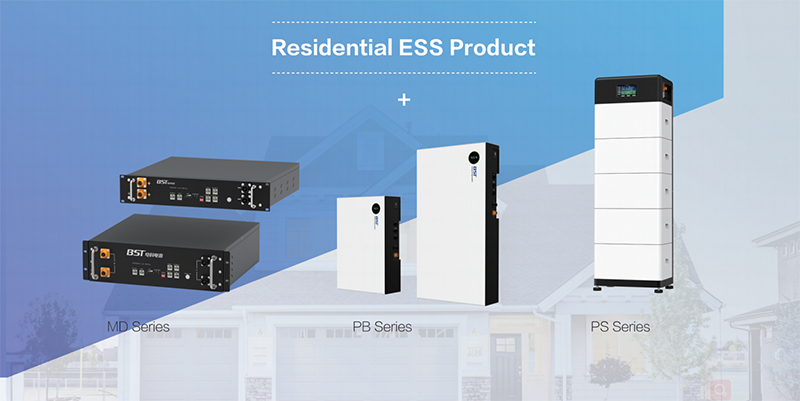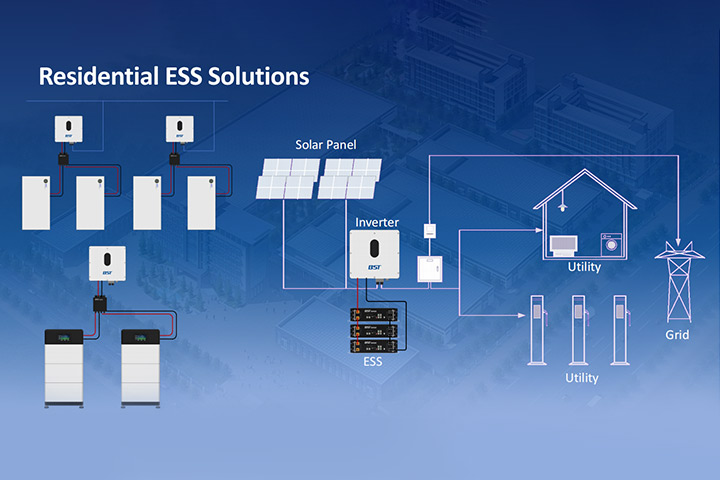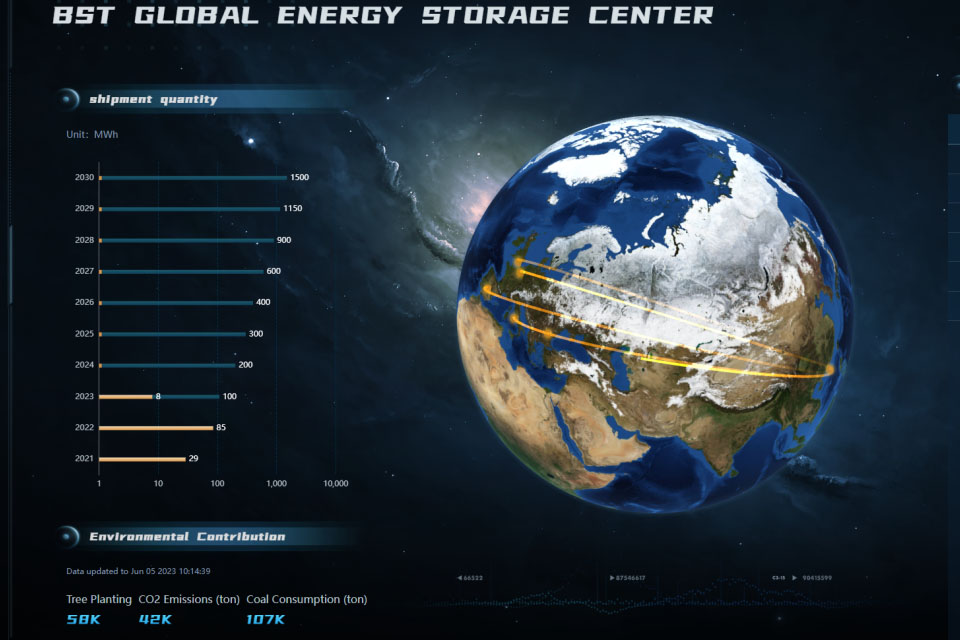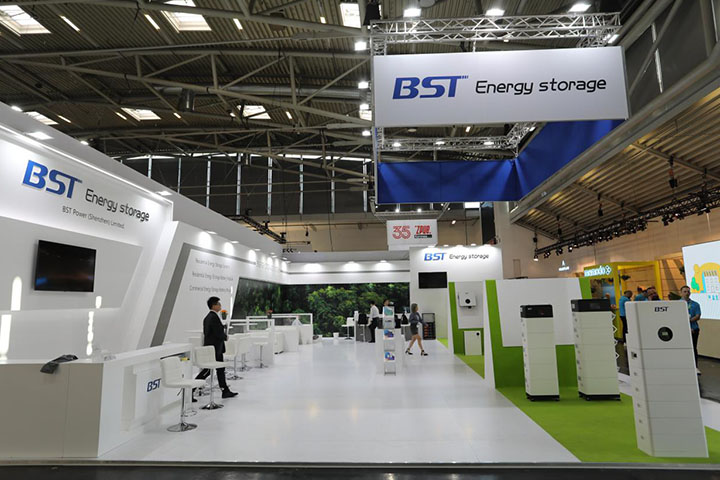The Current Status of the Lithium Battery Market
The lithium battery market has witnessed rapid growth in recent years, becoming a cornerstone for industries like electric vehicles (EVs), consumer electronics, and renewable energy storage systems. By 2025, the global lithium battery market is expected to exceed $160 billion, fueled by the accelerating adoption of EVs, growing investments in renewable energy, and rising demand for portable electronics.
Key application areas include:
- Electric Vehicles (EVs): Powering both electric cars and commercial vehicles, lithium batteries have a dominant role in achieving carbon neutrality.
- Energy Storage Systems (ESS): Lithium batteries are integral to renewable energy storage solutions, enhancing grid reliability and enabling distributed energy storage.
- Consumer Electronics: Smartphones, laptops, and wearable devices rely on lithium batteries for portability and long-lasting performance.
- Industrial Equipment: From drones to medical devices, lithium batteries are increasingly penetrating niche industrial applications.
Technology Trends:
- Energy Density: Research is focusing on improving energy density to extend battery life and reduce the weight of EVs.
- Safety Enhancements: Advanced thermal management systems and non-flammable electrolytes are being developed to minimize safety risks.
- Sustainability: Recycling and second-life usage of lithium batteries are becoming critical focus areas to address resource limitations and environmental concerns.
Top 15 Lithium Battery Manufacturers
1. BST Power

- Basic Information: Established in 2002, headquartered in Shenzhen, China, with over 3,000 employees and a global footprint in Europe, the US, and Asia.
- Core Products: Specializes in Li Battery Cells, Battery Pack, residential energy storage system
- Technical Advantages: Known for high energy density, superior cycle life, and advanced safety features.
- Market Performance: Strong presence in Europe and Asia, key partnerships with renewable energy companies.
- R&D Capability: Invests 10% of annual revenue in R&D, focusing on AI-enabled battery management systems (BMS).
- Future Plans: Expand production facilities in Europe and aim for breakthroughs in solid-state battery technology.
2. CATL
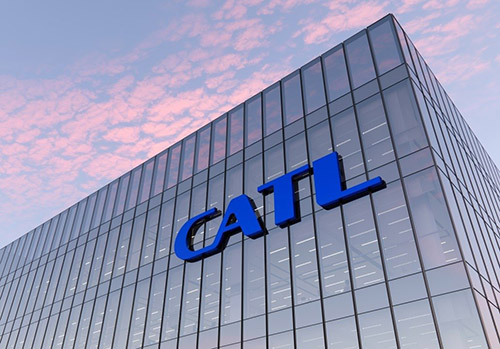
- Basic Information: Founded in 2011, headquartered in Ningde, China, with over 80,000 employees and manufacturing sites globally.
- Core Products: Offers cylindrical, prismatic, and soft-pack batteries for EVs and ESS.
- Technical Advantages: The industry leader in energy density and ultra-fast charging.
- Market Performance: Holds over 30% of the global EV battery market, supplying Tesla, BMW, and Volkswagen.
- R&D Capability: Strong team of 10,000+ researchers, investing $2 billion annually in innovation.
- Future Plans: Focused on sodium-ion batteries and expanding US and European production capacities.
3. LG Energy Solution
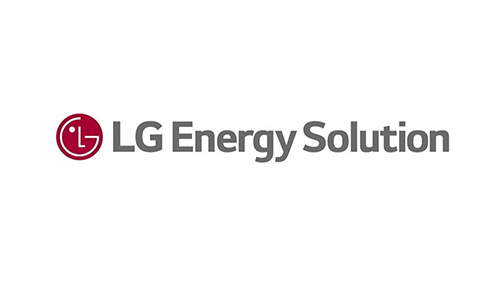
- Basic Information: Spun off from LG Chem in 2020, headquartered in Seoul, South Korea, with 25,000+ employees worldwide.
- Core Products: Supplies cylindrical, prismatic, and pouch batteries for EVs and electronics.
- Technical Advantages: Renowned for high safety standards and energy efficiency.
- Market Performance: Leading supplier for GM, Ford, and Stellantis, with a strong presence in the US and Europe.
- R&D Capability: Annual investment exceeds $1 billion, focusing on next-generation lithium-ion technologies.
- Future Plans: Collaborating with automakers to scale solid-state battery development.
4. Panasonic Energy
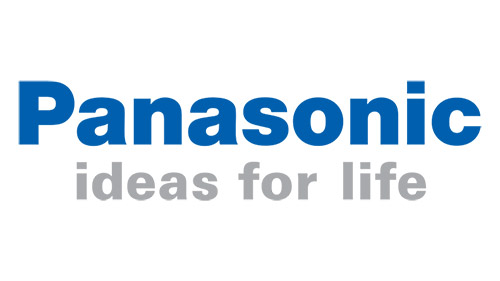
- Basic Information: Established in 1935, based in Osaka, Japan, with 50,000 employees globally.
- Core Products: This company specializes in cylindrical batteries, primarily for Tesla EVs.
- Technical Advantages: Known for high reliability and energy density in EV batteries.
- Market Performance: A dominant player in the EV segment, with Tesla as its largest customer.
- R&D Capability: Focused on developing cobalt-free batteries to improve sustainability.
- Future Plans: Expanding production lines in North America to meet growing EV demand.
5. BYD
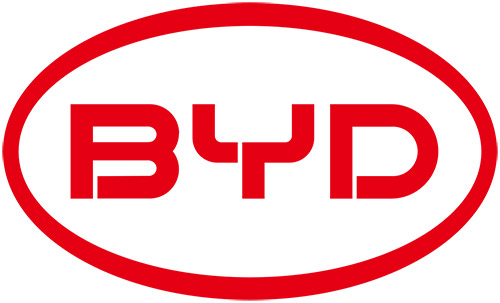
- Basic Information: Founded in
1995, headquartered in Shenzhen, China, with over 290,000 employees globally.
- Core Products: Manufactures lithium iron phosphate (LFP) and NCM batteries, primarily for EVs and energy storage.
- Technical Advantages: Pioneered the Blade Battery, known for its high safety and longevity.
- Market Performance: A major supplier for its own EVs and other automakers like Toyota.
- R&D Capability: Invests heavily in battery innovation, with a focus on integrating batteries into EV chassis for weight optimization.
- Future Plans: Expanding LFP battery production and exploring international markets, including Europe and the US.
6. Samsung SDI
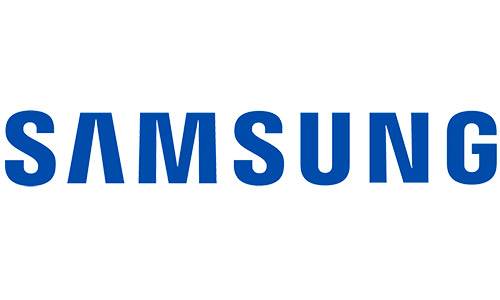
- Basic Information: Established in 1970, based in Suwon, South Korea, with 25,000+ employees.
- Core Products: Offers cylindrical, prismatic, and pouch batteries for EVs and ESS.
- Technical Advantages: Strong in high-performance batteries with superior energy density and safety features.
- Market Performance: Supplies batteries to BMW, Audi, and Stellantis.
- R&D Capability: Focuses on solid-state batteries and AI-driven battery optimization.
- Future Plans: Increasing production capacity in Europe and developing next-gen battery technologies.
7. SK ON
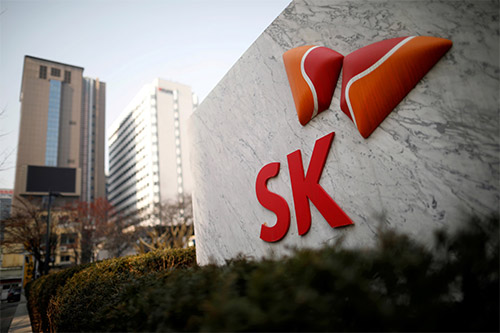
- Basic Information: A spin-off of SK Innovation in 2021, headquartered in Seoul, South Korea, with 10,000 employees.
- Core Products: Specializes in pouch batteries for EVs.
- Technical Advantages: Known for high energy density and safety.
- Market Performance: Key supplier for Ford and Hyundai, with increasing market share in Europe.
- R&D Capability: Strong focus on fast-charging technology and extended battery life.
- Future Plans: Establishing joint ventures in the US and Europe for localized production.
8. Northvolt

- Basic Information: Founded in 2016, based in Stockholm, Sweden, with 5,000+ employees.
- Core Products: Focuses on sustainable cylindrical and prismatic batteries for ESS and EVs.
- Technical Advantages: High sustainability through recycled materials and advanced thermal management.
- Market Performance: Partnered with Volkswagen, BMW, and Scania.
- R&D Capability: Developing green manufacturing techniques and higher energy density batteries.
- Future Plans: Expanding gigafactories in Europe to become a top regional supplier.
9. EVE Energy
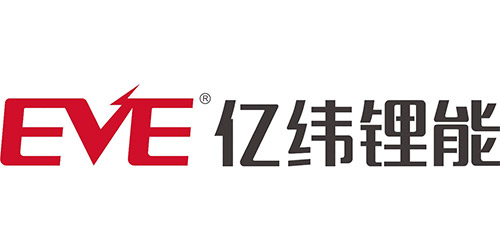
- Basic Information: Founded in 2001, based in Huizhou, China, with 12,000 employees.
- Core Products: Manufactures cylindrical and prismatic batteries for EVs and IoT devices.
- Technical Advantages: Known for long battery life and high safety.
- Market Performance: Supplies to major EV makers and IoT companies.
- R&D Capability: Focuses on next-generation energy storage solutions.
- Future Plans: Expanding production capacity and international partnerships.
10. Envision AESC
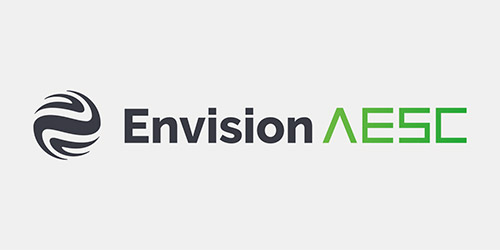
- Basic Information: Founded in 2007, headquartered in Yokohama, Japan, with 5,000 employees.
- Core Products: Focuses on pouch batteries for EVs.
- Technical Advantages: Strong in safety and energy density.
- Market Performance: Supplies Nissan and other global automakers.
- R&D Capability: Investing in AI and sustainable battery technology.
- Future Plans: Scaling production in the US and Europe.
11. Svolt Energy Technology
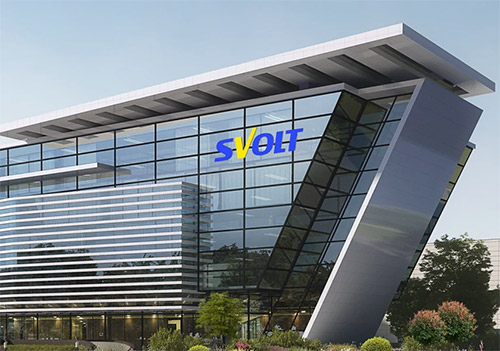
- Basic Information: Established in 2018, headquartered in Changzhou, China, with 4,000 employees.
- Core Products: Specializes in cobalt-free prismatic and pouch batteries for EVs.
- Technical Advantages: Pioneered cobalt-free technology, offering cost-effective and sustainable solutions.
- Market Performance: Supplies major Chinese automakers, including Great Wall Motors.
- R&D Capability: Dedicated to cathode material innovation and fast-charging technologies.
- Future Plans: Expanding production capacities in Europe and focusing on next-gen battery technologies.
12. Sunwoda
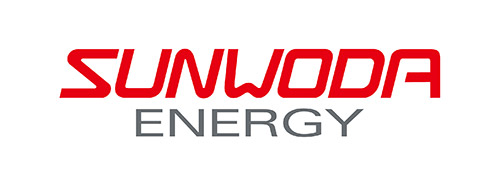
- Basic Information: Founded in 1997, based in Shenzhen, China, with over 10,000 employees globally.
- Core Products: Produces pouch and prismatic batteries for consumer electronics, EVs, and energy storage.
- Technical Advantages: Strong in high energy density and cost-effective solutions.
- Market Performance: Supplies Xiaomi, Huawei, and Chinese EV brands.
- R&D Capability: Investing in advanced battery materials and second-life applications.
- Future Plans: Expanding partnerships with international automakers and scaling energy storage production.
13. VARTA AG

- Basic Information: Established in 1887, headquartered in Ellwangen, Germany, with 4,000+ employees.
- Core Products: Specializes in cylindrical and coin cell batteries for consumer electronics and medical devices.
- Technical Advantages: Known for precision engineering and long-lasting performance in small batteries.
- Market Performance: A leader in micro battery markets, supplying companies like Apple and Samsung.
- R&D Capability: Focused on miniaturization and next-gen battery chemistries.
- Future Plans: Expanding into EV batteries and strengthening European production capabilities.
14. BMZ Group

- Basic Information: Founded in 1994, headquartered in Karlstein, Germany, with 3,000 employees globally.
- Core Products: Offers custom lithium battery solutions for ESS, industrial applications, and EVs.
- Technical Advantages: Strong in modular battery systems with high flexibility and safety.
- Market Performance: Supplies industrial OEMs and renewable energy companies in Europe.
- R&D Capability: Focuses on battery pack integration and thermal management.
- Future Plans: Expanding battery pack production in the US and developing solid-state battery systems.
15. Tesla Energy
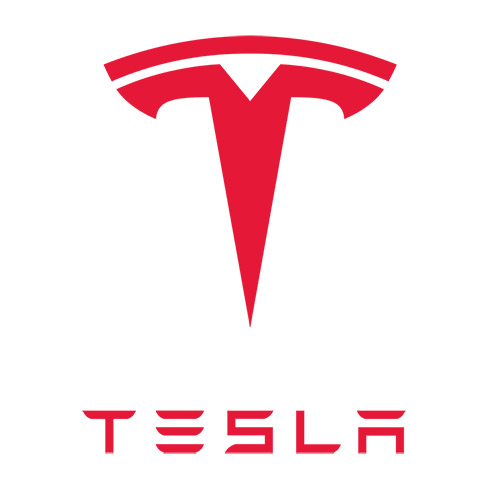
- Basic Information: Established in 2003, headquartered in Palo Alto, California, with over 40,000 employees globally.
- Core Products: Produces cylindrical batteries for EVs and energy storage systems (Powerwall and Megapack).
- Technical Advantages: Strong in cost-efficiency, energy density, and vertical integration with battery production.
- Market Performance: Collaborates with Panasonic and CATL, dominating the EV battery market.
- R&D Capability: Focuses on high-nickel cathode batteries and tabless design for improved efficiency.
- Future Plans: Scaling battery production with 4680 cells and exploring solid-state battery development.
Trends and Future Outlook
- Market Forecast:
By 2030, the lithium battery market is projected to surpass $200 billion, driven primarily by the EV sector, which will account for nearly 60% of demand.
- Regional Growth: Asia-Pacific will maintain dominance, but Europe and North America will see accelerated growth due to policy incentives.
- Application Areas: Energy storage systems and industrial applications are expected to grow rapidly as the renewable energy transition accelerates.
- Industry Challenges:
- Raw Material Prices: Volatility in lithium, cobalt, and nickel prices may increase production costs.
- Technological Bottlenecks: Advancing energy density and recycling efficiency remain pressing concerns.
- Policy Impact: Global trade policies and subsidies for EVs and renewables will significantly influence the market.
- Development Directions:
- Technological Innovation:
- Solid-state batteries will be a game changer, offering higher energy density and safety.
- Sodium-ion batteries are emerging as a cost-effective alternative for grid storage.
- Supply Chain Optimization: Recycling and second-life battery usage will become critical to address raw material shortages.
- Global Expansion: Localized production facilities and international partnerships will reduce supply chain risks.
Summary
The top 20 lithium battery manufacturers highlighted in this article are spearheading innovation and scaling to meet the growing global demand. Companies like CATL, BST Power, LG Energy Solution, and Northvolt are setting industry benchmarks in energy density, safety, and sustainability.
The lithium battery market’s rapid expansion is driven by the electrification of transport, the rise of renewable energy storage, and increasing investments in technological innovation. Solid-state batteries, recycling, and internationalization will be the key focus areas in the coming decade.
The future of lithium batteries lies in advancing technology, improving sustainability, and addressing global energy needs, positioning them as a cornerstone of the clean energy revolution.
